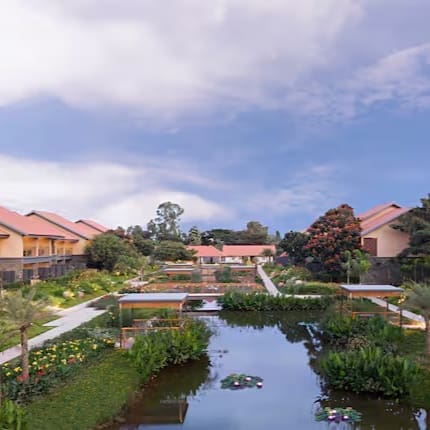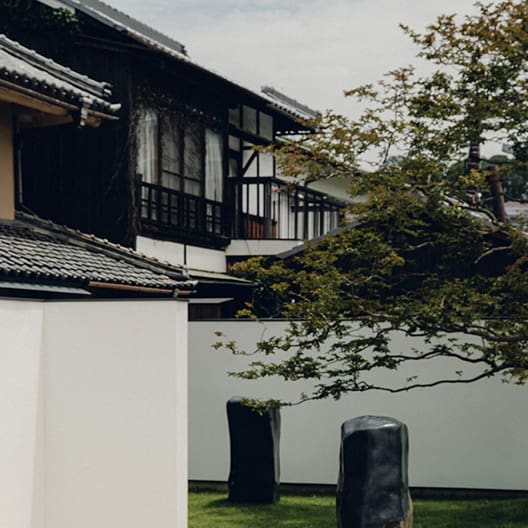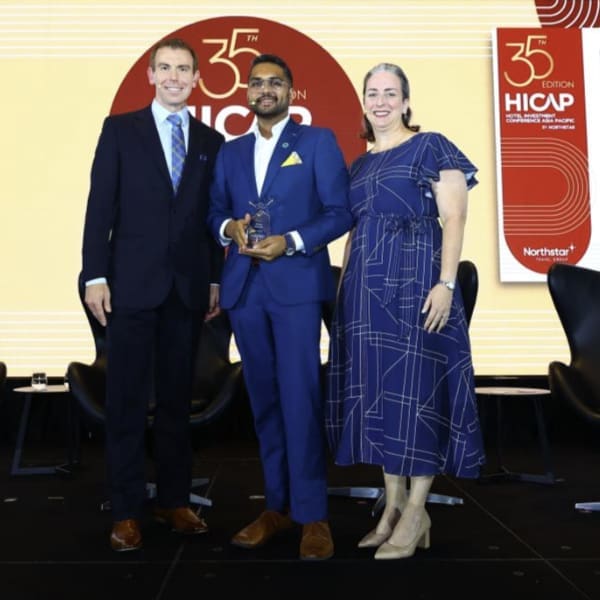 The HSMAI Foundation and HSMAI Asia Pacific hosted a virtual Executive Roundtable on the 19th August 2020 for hotel chief human resources officers in the Asia Pacific region to discuss current and potential future challenges they are facing in the new world of COVID-19. J. Bruce Tracey, Ph.D., editor of Cornell Hospitality Quarterly, professor of management at Cornell University’s School of Hotel Administration, and member of the HSMAI Foundation Board of Trustees facilitated the discussion. HSMAI Americas hosted a similar roundtable on June 14.
The HSMAI Foundation and HSMAI Asia Pacific hosted a virtual Executive Roundtable on the 19th August 2020 for hotel chief human resources officers in the Asia Pacific region to discuss current and potential future challenges they are facing in the new world of COVID-19. J. Bruce Tracey, Ph.D., editor of Cornell Hospitality Quarterly, professor of management at Cornell University’s School of Hotel Administration, and member of the HSMAI Foundation Board of Trustees facilitated the discussion. HSMAI Americas hosted a similar roundtable on June 14.
Here are key takeaways from HSMAI’s Asia Pacific CHRO Executive Roundtable:
Government help and concerns
Governments in every country around the world have handled the pandemic differently in terms of shutdowns, travel restrictions, and economic relief. Even throughout Asia-Pacific, roundtable participants have had different experiences with state and international border closings, quarantine, and receiving aid from the government. While the majority of participants said that they have most of their hotels open, sustained border closings could hurt their business in the long term.
“If the border continues to be closed, the first half of next year is going to be very tough for us,” one participant said, “particularly in Singapore, where the government is paying us a low rate so that we are fully open. But if the border remains closed, the government support will go away.” The participant added: “Australia is our second-biggest concern. If the state borders are still not open, it’s going to impact us. We think that China will recover first, but Malaysia and Vietnam are going to be difficult.”
Another participant’s company has already been impacted by border restrictions because 40% of the staff is made up of foreigners who cannot return to work.
In Australia and New Zealand, one participant said, the Jobkeeper Program and the Wage Subsidy, respectively, have been crucial to getting many people in their company through the pandemic so far, but even as they were grateful for the assistance, another participant said it has been challenging navigating the logistics of the two programs. “For a number of months, we were just responding to the daily changes of Jobkeeper, New Zealand Wage Subsidy, short-time work in Europe, and all of the changing rules coming out,” the participant said. “It was very dynamic and the pace was frenetic. Our focus became very compliance- and employment-law-oriented.”
Innovation and the future
While participants do not know what the future holds, they are confident that the industry will bounce back. “We will come out of it more agile than hotels were before,” one participant said. “We’re the ones that will absolutely collapse if we don’t get around it. So, I think we will come out with a much better-structured industry moving forward.”
The pandemic has brought about innovation and creativity in many areas, making companies stronger than before. “The one thing I’m really excited about, for our industry coming out of this, is it was so traditional before,” one participant said. “And this is giving us the opportunity to look at structures in our hotels and figure out if there are better ways of setting up departments to get better efficiency and productivity.
“And I think the views on working from home have changed for the better,” the participant said. “I’m looking forward to seeing what that looks like for us on the other side of this because I don’t think it’s about work-life balance anymore, I think it’s more about that work-life integration.”
Another participant noted that his hotels have been producing monthly videos, compiling what everyone has been doing, which has inspired some employees who were made redundant to show their creative side. Employees were opening up cafeterias and catering businesses in hotel car parks, selling cakes and other local foods to current employees. “So much of that came from this video connection we were having,” the participant said, “because suddenly we discovered that the employees at hotels that suspended operations were going into their [the hotel’s] gardens and growing their vegetables and organic leaves.”
Taking care of employees
“With everything that’s happening, our biggest priority is just the wellness of our team members,” one participant said. “We’re spending quite a lot of time, at the moment, working with different partners on resilience, mental health in particular, and different things that we can do for our team for wellbeing.”
Another participant added that a recent survey showed that hotel leaders in her organization said that their number-one concern is team morale and wellbeing. “We’re going to partner with an external organization to focus on resilience, and we’re then partnering with another wellness expert to really help our leaders develop their coaching skills,” the participant said, “so that they can have the strong quality conversations with their teams to not only build their own personal resilience but to enable the resilience of their team members.”
It’s not just team members who are still fully employed who are a concern. Several participants said they are making it a priority to engage with and take care of employees who have been furloughed or let go. “It’s about making sure we’re coming up with different ways of keeping in touch with people,” one participant said. “And at the moment, it’s about being there for our team members as much as we can, even if they’re not physically with us.”
“We’ve asked all of our hotel leaders to keep in touch equally with the teams that are working and the teams that aren’t working right now,” another participant said. “We built a website that enabled everyone to be able to access information, and we built a portal that had learning content, wellbeing content, financial information and support, alternative job opportunities for team members who might’ve been stood down.”
The mission of the HSMAI Foundation is to elevate the overall caliber and performance of sales, marketing, and revenue optimization professionals in the global hospitality industry by driving initiatives that will attract new talent, develop emerging talent, and engage existing talent. Learn more here.
About the author
Kaitlin Dunn, Writer, Hospitality Sales & Marketing Association International (HSMAI)
About HSMAI
HSMAI is a 90-year old, non-profit association and is the industry’s leading advocate for intelligent, sustainable hotel revenue growth. HSMAI is an individual membership organisation comprising more than 7,000 members globally with a presence in the Americas, Asia Pacific, Europe, Brasil and the Middle East.
HSMAI Asia Pacific’s mission is to be the leading source of information, tools, insights, business development, and Education for professionals in the hospitality industry. With a strong focus on education, HSMAI has become the industry champion in identifying and communicating trends in the hospitality industry while operating as a leading voice for hotel sales, marketing and revenue management disciplines. Activities in the region are held in Singapore, Hong Kong and mainland China, Indonesia, India, Thailand and Australia.
For additional information, refer to the website at www.hsmaiasia.org or the HSMAI Academy portal at https://hsmaiacademy.org. Follow them on Twitter @hsmaiasia or Facebook or join the LinkedIn group at HSMAI Asia Pacific.

















